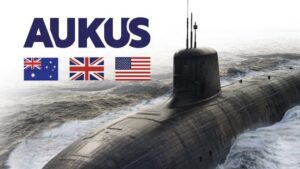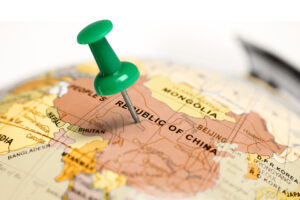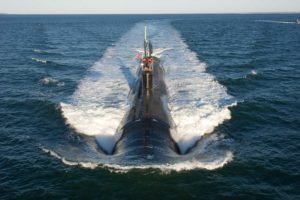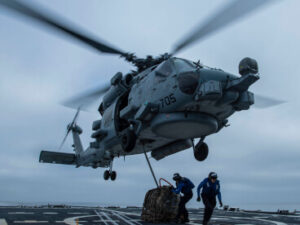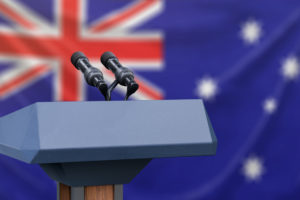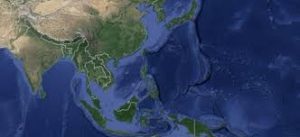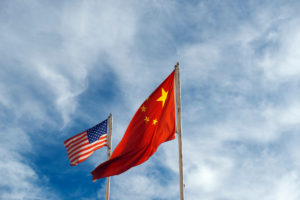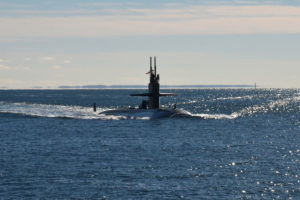The Russian invasion of Ukraine on February 24 was one of those punctuation points in history, like the fall of the Berlin Wall or the terrorist attacks of September 11, 2001, when it was immediately apparent that there had been a transformational change in the international system, with consequences that would be as large as they would be hard to predict.
The greatest shock of the invasion was felt in Europe. The events challenged comfortable assumptions about how big security challenges could be managed. The United States once again diverted its attention away from the Indo-Pacific region to attend to a vicious war that directly engaged its most important alliance. But, elsewhere, the war was largely seen as a distraction for North America and Europe that left them, for better or worse, unable to address the big issues facing the “global South,” including the deadly war in the Tigray region of Ethiopia. Despite this, it soon became apparent that the conflict could not be easily contained. To an international economy already battered because of the COVID-19 pandemic, the crisis added energy and food shortages and consequential inflation. Russia sought to use its control over energy supplies to coerce European countries out of their support for Ukraine, creating a knock-on effect in global markets. Many countries depended on imports of Ukrainian grain, but these could not reach them as long as Ukraine’s ports were cut off by the Russian blockade. The prospect of famine was added to the potential sources of political turmoil in Africa and the Middle East.
The geopolitical effects were potentially starker. During the previous decade, the focus had increasingly been on a renewed age of strategic competition among the great powers, with China growing in strength and confidence and joining Russia in challenging American predominance. Meanwhile, Europe was struggling to find a way of asserting its own influence, both as a natural partner of the United States on so many security issues and in its efforts to protect its own distinct interests. India continued to remind people that it could rival China in size and economic potential, was destined to be a major international player, and did not wish to jeopardise its good security relations with Russia. Japan watched warily, unsure about the durability of its alliance with the United States.
Against this backdrop, Ukraine provided a critical test of the new geopolitics. How well would the various mechanisms in place for managing crises cope? What was the risk that the war could not be contained and might even lead to nuclear exchanges? Would China take an opportunistic view of the conflict and make a move on Taiwan while the United States was otherwise engaged? Would Russia confirm its return as a force to be reckoned with in international affairs after a successful campaign against Ukraine? Alternately, would a failed campaign leave Russia diminished and in decline?
EUROPE
With initial calculations assuming an easy Russian victory, the Baltic states feared they would be next and demanded that their NATO allies strengthen their defenses—they did. Finland and Sweden, meanwhile, conducted strategic reappraisals that led them to submit bids to join NATO. Elsewhere in Europe, new German Chancellor Olaf Scholz announced a complete rethink of his country’s strategic outlook, accepting the need to raise military spending. Decades of hoping that close economic relations with Russia—including accepting dependence on Russian gas—would keep the peace now looked naïve.
As the war progressed and Ukraine grew stronger, questions were raised about how a desperate Putin, faced with complete humiliation, might escalate the conflict to a dangerous level. Other scenarios that were envisioned imagined a shock to the Russian system so great that it would cause the country to fragment. Neither scenario came to pass, and it appeared the extremes were unlikely to occur. Instead, observers came to believe the war might settle down into a long, hard attritional slog in and around the Donbas region, and concerns then turned to whether Ukraine’s supporters could sustain the country with financial and military assistance for an extended period, with its reconstruction delayed because of the continued fighting.
In July 2022, attitudes began to shift again as advanced Western systems, particularly long-range artillery, were incorporated into the Ukrainian front line. This caused serious problems for Russian logistics, leading the Russians to reconsider what had previously seemed a certain victory. Even with these changes, however, it remained unclear how negotiations could bring about a definitive peace settlement.
Meanwhile, the war’s repercussions caused major problems for many European economies, especially because of the major shifts in energy policies required, with Germany having to make the biggest adjustments. Moreover, while the response of the EU was impressive in some key respects—such as imposing swift and punitive sanctions, accommodating Ukrainian refugees, and getting the process underway to admit Ukraine as a member—the crisis also demonstrated continued European dependence on the United States. The scale of American assistance to Ukraine dwarfed that of the EU states and gave the United States the leading role in crisis management. While the Western countries maintained an impressive unity, the apparent readiness of French President Emmanuel Macron and German Chancellor Scholz to keep open lines of communication to Russia led to a feeling of disenchantment with some of norther Europe’s leaders. The UK, though now out of the EU, was seen to be a more reliable partner on security matters than some of its EU counterparts.
INDO-PACIFIC
While the war in Ukraine largely united Europe against Russia, it left the continent in a more fragile state as it faced potential domestic upheavals and sacrifices to cope with energy shortages and inflation. It also kept the United States focused on Europe, with limited capacity to devote to the Indo-Pacific region. A large part of the Pentagon’s business came to be arranging aid to Ukraine and then worrying about how to replenish depleted stocks.
For China, this might have been something of a boon. At a meeting a few weeks before the invasion, Putin had met Xi Jinping, and the pair issued a long communique about their close relations and the joint challenge they presented to American attempts to establish a unipolar order. Yet, when the invasion came, Beijing abstained in UN votes and seemed more interested in peace deals than Russian victories. To be sure, it picked up on some of Russia’s propaganda themes, although it largely opted for those that blamed the United States and NATO for the trouble and condemned economic sanctions as interference with free trade. It could not, however, provide Russia with the components it needed for its manufacturing industry, including defense production; unaccountably, many of these components had been sourced from Western countries. Nor did China provide Russia with any weapons, although there were reports that it had been asked.
As Russia struggled in its war, there were reasons for China to be concerned. First, China had not backed a winner and now risked association with failure. Second, the Russian weapon systems it had agreed to buy, such as Su-35 combat aircraft and S-400 air defense missiles, underperformed, while American systems such as HIMARS appeared as game-changers. At the very least the war was a good advert for the quality of western weaponry. Third, it provided a cautionary tale about how the most compelling military plans could fall short when implemented; Ukraine’s initial defensive strategy was similar to Taiwan’s “porcupine” strategy. Fourth, it showed that Western countries were capable of prioritizing long-term security considerations over short-term economic well-being; it could not be assumed that they would stand back if China embarked on a military offensive of its own. Washington’s regional partners and allies, including Japan, South Korea, and Singapore, as well as Taiwan and Australia, imposed their own sanctions on Russia. Hopes of a more fragmented West, which grew during the Trump years, were no longer realistic.
Then there was the fact that 2022 was not a good year for China. It became apparent that a zero COVID policy—which China was committed to because of Xi’s claims to have vanquished the disease—was untenable; regular lockdowns in major cities such as Shanghai led to social discontent and further disrupted the economy. Problems in the real estate sector grew with the risk of major defaults and the economy slowed down markedly. The narrative of China’s inexorable rise and the West’s decline no longer looked so certain.
EUROPE AND INDO-PACIFIC
When AUKUS was announced in September 2021, it demonstrated that the UK was serious about becoming more of a player in Indo-Pacific affairs, especially as it was followed the next month by a carrier strike group led by the new aircraft carrier, HMS Elizabeth, deploying to the region. At the same time, AUKUS was seen as a disruptive move because of the issues that arose with France’s submarine contract. Questions were also raised about how much the UK could actually commit to a conflict with China while still honoring its obligations to NATO. Those concerns about military capacity increased because of Ukraine, yet it also showed the value of a different model of security support: providing equipment, technology, training, and advice without getting directly involved in any fighting. In this respect, the United Kingdom demonstrated that it could be a credible partner through its support of Ukraine. Meanwhile, there have been efforts to repair French-Australian relations as France confirms its readiness to play an active role in regional security affairs.
This increased salience of security concerns in Europe is now affecting relations with China. The pandemic had already caused European countries to reassess their critical supply chains, and the readiness of Russia to use their dependencies for coercive effect encouraged deeper scrutiny of similar vulnerabilities with regard to Europe’s reliance on Chinese goods. Similarly, the conflict highlighted the importance of safe and open communications networks and added to a growing determination to not be dependent upon Chinese technology.
The harsh and militaristic Chinese response to House speaker Nancy Pelosi’s visit to Taiwan in early August demonstrated how seriously Beijing takes the issue. It was keen to demonstrate its military options, warning Taiwan of the consequences of formal independence from the mainland, but it remains unclear outside of that contingency how far it is prepared to go to force full re-unification. For the moment the prudent response is not to be panicked by Beijing’s belligerence. Instead of being scared into complying with Chinese demands, Europe, through NATO, has accepted that it cannot ignore Chinese threats to security. Having accepted that the overall international environment is much tougher and more dangerous, the inclination in Europe is to recognise that the closer relations between the United States and Europe resulting from the Russo-Ukraine War will extend to the Indo-Pacific region. There may be limits on the potential European contribution should a full shooting war begin over Taiwan between the United States and China, but if a future crisis begins with a Chinese blockade then the British and French navies would probably be expected to join in moves to assert freedom of navigation.
President Xi might raise the stakes again once his position has been confirmed in the coming Party Congress but so long as the conflict does not escalate further, Europe’s main preoccupation will continue to be Russia. As long as Putin is in power and the current state of sanctions remains, the disengagement from Russia will be complete. How long Putin—or Putinists—will stay in power is the big question. Despite persistent bombast and a studied disregard for international law, Russia’s objectives in this war remain unclear. Is it some new European security order with Ukrainian neutrality? A new regime in Kyiv? The protection of the Donbas enclaves? Or is it the conquest and Russification of much of eastern and southern Ukraine? Without far greater effort, including full national mobilization, these objectives seem largely beyond Russia’s reach. And despite concerns that Putin was prepared to risk it all by using nuclear weapons, the war in Ukraine has remained a limited “special military operation.” Putin’s calculation may be that he can hold on to established positions as Western resolve weakens with deepening energy and economic crises. If instead it is Russia’s position that becomes unsustainable and Putin must withdraw—perhaps under cover of a face-saving political settlement—then Russia’s status as a great power will be diminished and its past clients and partners, including China and India, will have to adjust accordingly. And if Russia is forced to retrench, Europe may be surprised to learn that the continent’s security environment is far more benign than it ever expected.
